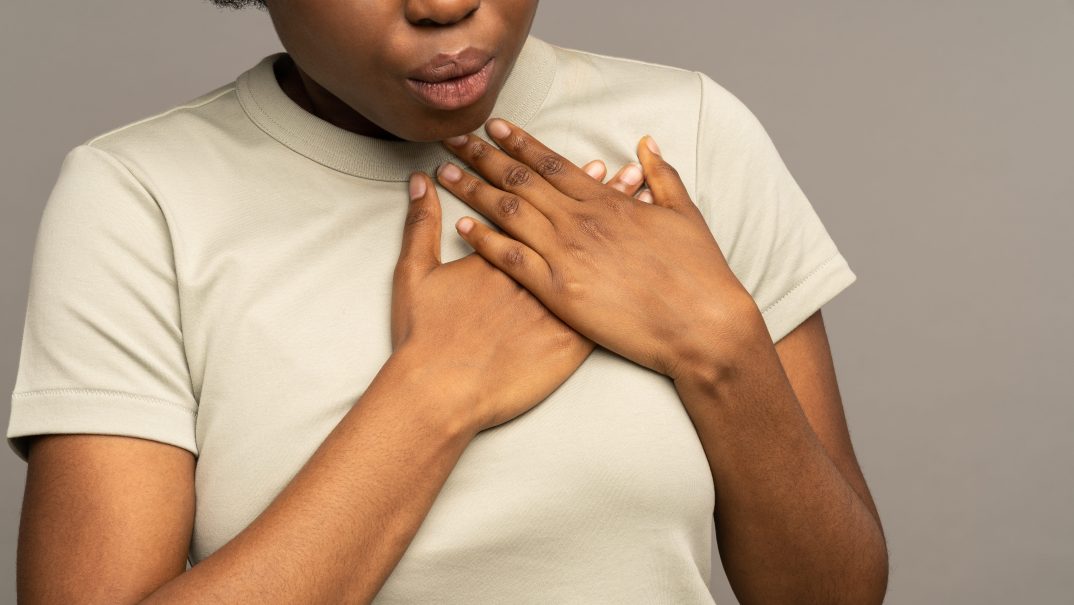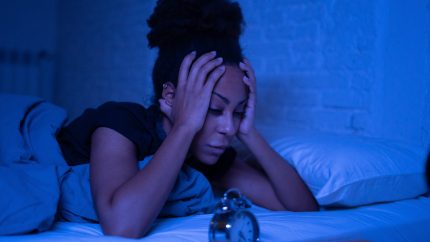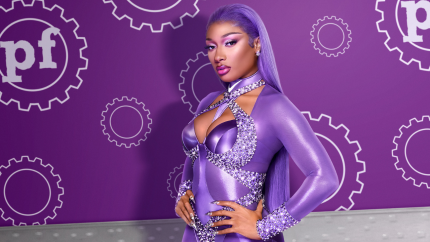Heart disease is the biggest threat to Black women — but it doesn’t have to be
The CDC and Black Heart Association partner to raise awareness of self-care for Black women's heart health.

Heart disease is the leading cause of death in women, Black women especially.
“It’s killing more women than all forms of cancer combined,” Dr. Leandris Liburd, acting director for the Centers for Disease Control and Prevention’s Office of Health Equity (OHE), told theGrio. “When we think about Black women, we know that Black women are 60% more likely to have high blood pressure. Black women have higher rates of cardiovascular disease and coronary disease, as well as higher rates of stroke deaths, than when we compare them to their non-Hispanic white counterparts.”
However, according to Liburd, “this doesn’t have to be the case.”
While Liburd said there’s much that we can do as a community to change these stats together, she said the first step is, “We [as Black women] have to decide that we are worthy of taking care of ourselves and putting our own health first.”
During American Heart Month, the CDC’s Live to the Beat initiative — which aims to engage Black women in heart health — is partnering with the Black Heart Association to bring awareness to this urgent concern. Liburd and the founder of the Black Heart Association, Tara Robinson, sat down with theGrio to discuss the partnership, the issue at hand, and what Black women need to understand most about heart health today.
Liburd said that while these alarming rates can be attributed to “systemic factors that are largely outside of the control of the woman,” like finances, environment, family history, and access to healthcare and insurance, mental health also plays a huge role in heart health.
“We really want to give Black women permission to prioritize their own self-care and to start to think about self-care,” she explained.
Robinson, who founded the Black Heart Association in Texas with her husband after she survived three heart attacks in three days at age 40, is a cautionary tale for what happens when you don’t manage your stress and anxiety. After a lifetime of being in “fight-or-flight” mode, dealing with large amounts of stress, and caring for others, Robinson suffered heart attacks. She now works to educate the Black community on managing their well-being.
She said when you get stressed or anxious over something, your body goes into this fight-or-flight response, which causes adrenaline to be released and your cortisol levels to increase.
“[Your body] releases that adrenaline and it makes your heart rate speed up and your blood pressure rises,” she continued. “So long term — like for me, it was long term – can you imagine doing that for 40 years? Then, all of a sudden, it’s just a ticking time bomb. And that’s the life for so many of us.”
Robinson said when she’s doing outreach through her association, one of the first things she asks people is if they’re okay. “Then we dig a little deeper,” she said.
Considering how many Black women serve as the heads of their households, the primary breadwinners, and work demanding jobs with grueling hours, Robinson and Liburd know many could stand to get serious about self-care.
“That’s why this campaign is so important because we want to get ahead of it instead of working from behind it or instead of it catching us off guard,” said Robinson, who has also lost a brother-in-law to heart disease.
Adopting a new health approach, which could include lifestyle and diet changes, can be daunting, so Liburd said the Heart2Heart Challenge encourages taking small steps instead. These simple, small steps toward better self-care can look like deep breathing during times of anxiety and stress, journaling, stretching, and ultimately, taking a pause. It doesn’t have to be a major part of anyone’s schedule.
“Just finding that spare 15 or 20 minutes that you have to just pause,” Liburd said.
The idea is that over time, 15 or 20 minutes could become more, and the one or two small steps could become a whole self-care routine.
Another component of the challenge is to go and get a professional check-up and, if necessary, seek professional mental health resources. This campaign is also striving to destigmatize seeking professional help with mental health because of its lasting impact on health overall. The final piece is to share what you’ve been up to with at least one other person who you could potentially inspire to adopt some self-care habits of their own.
Recommended Stories
Liburd noted that she wants Black women to “rethink the possibilities of their health.”
“I’ve also observed where people will assume whatever happens in their community is what will happen to them,” she said. “So if you grow up around lots of chronic conditions, people start to assume that it’s inevitable. If everybody else has had diabetes, it’s inevitable I’ll get it too. It’s inevitable that I’m not going to live past a certain period of time. You know, it’s inevitable that I’ll have high blood pressure. It’s not.”
Robinson reiterated that Black women should know that they matter.
“Their lives matter, and they deserve to be here happy whole, well, living, dancing, smiling, and laughing. We deserve that,” she said.
When it comes to Black women getting serious about their health, Robinson simply said, “It’s time, it’s past time.”
Kay Wicker is a lifestyle writer for theGrio covering health, wellness, travel, beauty, fashion, and the myriad ways Black people live and enjoy their lives. She has previously created content for magazines, newspapers, and digital brands.
Never miss a beat: Get our daily stories straight to your inbox with theGrio’s newsletter.








